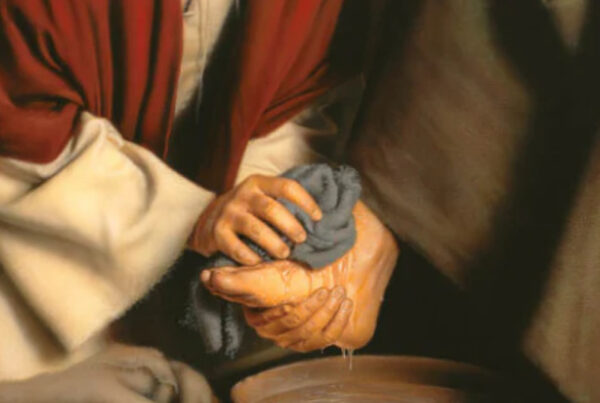Book of Amos: Chapter 2
Moving closer into the inner circle, Moab is next on God’s list for Amos. The Moabites were also descendants of Abraham’s nephew, Lot. Their crime was against the King of Edom for burning his bones to cinders. Mid-eastern belief held strongly that the human spirit could not rest or travel to the next world without a decent burial. Warfare that included indecent disposal of the body was intent on depriving its victims of that rest. It was for this sin that God drew the line with Moab because it sought to kill beyond the flesh and destroy the soul which is God’s realm, thus showing a total disregard for God as Creator and Lord of all life. God did not need to have a special covenant with these nations in order to judge them. Being Creator of all mankind, He automatically instituted an unwritten and unspoken covenant of sanctity of life and code of honor and ethics for mankind towards each other. Moab’s punishment was that its capital, leadership, and royal lineage would perish in war, leaving no hope for a future. Sometime after 598BC Nebuchadnezzar of Babylon became God’s tool for executing this judgment on Moab. Thereafter, like Edom, the land of Moab would be occupied by Arab tribes.
Now Amos began to speak of Israel’s other half — Judah. Because of the rift within the nation that caused the separation into northern and southern kingdoms, the Israelites, upon hearing Amos’ words for Judah, were probably feeling quite justified in their actions, both political and religious. But God had made a special covenant with this united nation — a covenant beyond that given to all mankind. Like Israel, Judah’s covenant was to live according to God’s Law as prescribed in the Torah and the books of Moses. But now they had rejected both His Law and Him. So being an ‘equal opportunity’ God, God judged Judah as He did the other nations, i.e. on the basis of their knowledge. As the Apostle Paul reminds us: “God is no respecter of persons (Acts 10:34).” Like the others, they also had violated God’s law even though they knew more of Him and had received specific favor and instruction on how to live. God also did not need to elaborate on their sin. It was enough that they rejected His prescription for life. He cannot execute His plan for His people outside of the parameters of His design. Judah, having instituted idol worship in the Temple at Jerusalem, was now standing way outside of His parameters. Jeremiah records Judah’s final destruction at the hand of Babylon’s Nebuchadnezzar in 586 BC. But unlike the Philistines, Ammonites, and Moabites, God’s judgment on Judah does not include leaving her no future. God leaves that door open.
In chapter 2, 5 verses are spent on the judgment of two nations, while 11 are focused on Israel alone. This is not what the people of Israel expected. At this time of prosperity, in their self-righteousness they expected to hear God’s blessing and favor despite their waywardness. It was probably then that Amos was thrown out of Israel. Unlike Judah, God does not just say they rejected His law. Instead of mentioning just one sin that made Him draw the line, He describes a litany of sins—sevenfold, representing God’s maximum limit. Sadly, Amos describes what could easily be the behavior of any other godless nation. The focus again is on how mankind treats each other. Did not God lay down these principles in Leviticus? What happened? God presents His case of the many times that He rescued these people, and provided for them. Yet in spite of this rich and indebted history, they now resemble a nation He never knew. Now there was no more turning a blind eye, or extending grace to Israel. Her time of judgment had come.
Israel’s sins burdened God as no other nation’s did. Throughout her history God was her strength for her very existence. Now, because of how far she had strayed, God has to remove Himself from her midst. She no longer reflected Him. Notice that her judgment does not include fire, but weakness – impotency. Now He could no longer be amongst her to rescue, strengthen and do miraculous things to ensure her existence. Israel had rejected God and now God would allow her to have just what she wanted — her freedom from Him.
Key Verse:
“They sell the innocent for silver, and the needy for a pair of sandals.” ~ Amos 2:6b
Questions to ponder:
- When society becomes corrupted and a certain way of life becomes the norm, even if God does not judge immediately, is He okay with us adapting to the new norms?
- If God were to measure your behavior against His precepts, would He find you closer to His or to society’s values?
- Like Israel, are you, by your behavior, asking God to leave you alone so you can do whatever you want?


